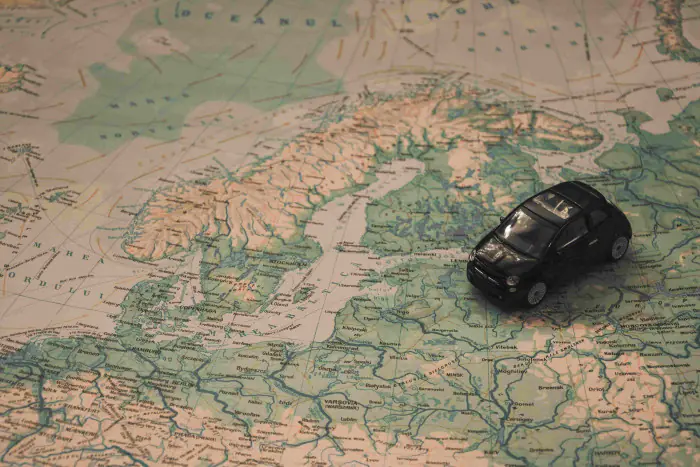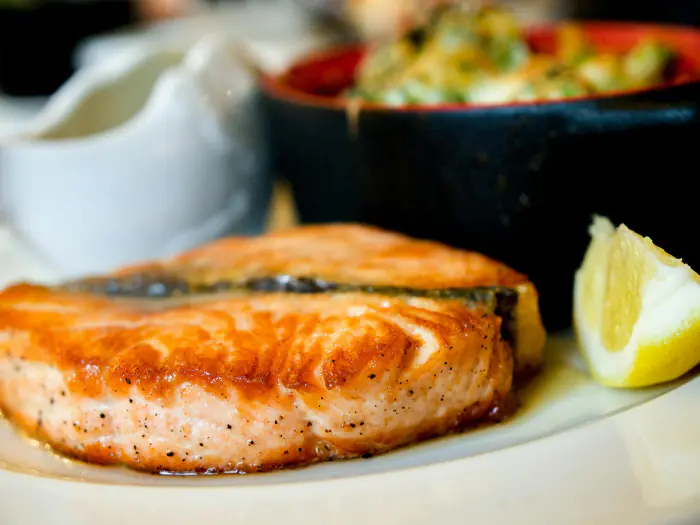MOVING TO NORWAY
Are you emigrating to Norway?
UTS can help you!
Norway, located in the north of Europe, has about 5.5 million inhabitants and an area of 385,203 square kilometers, making it the seventh largest country in Europe. Known for impressive fjords created by glacial melting, as well as mountains, lakes and forests, it is home to the highest point, Galdhøpiggen, at 2,469 meters above sea level. Norway's culture is closely linked to nature and has a long tradition of folklore, music and literature. It is home to some world-famous writers and artists, including Henrik Ibsen, Edvard Munch and Roald Dahl.
Norway is a progressive country with a high standard of living and a high quality of life. It has one of the highest per capita incomes in the world and is known for its progressive social programs, free health care, and a high standard of living. Overall, Norway is a country with a rich history, impressive nature and a strong economy. All these aspects make it a unique and attractive destination and a desirable place to live.
When you have UTS as your partner, you can rest assured that your move will be handled smoothly and professionally. Thanks to our many years of experience, we know exactly what is important when it comes to international removals. We take the time to clarify all the necessary aspects with you in a personal consultation and take your individual wishes and requirements into account.
We have created this page for anyone interested in Norway. Here you will find a wealth of information that is important for a move to Norway. This includes information on entry and import regulations, advice on entering the country with pets and interesting facts about the cost of living, rental prices and culture in Norway.
Your contact person

ALL TOPICS AT A GLANCE:
Our services
- Individual requirements
- Individual offers
- Pre-inspection
- Delivery & unpacking on site
- Dismantling, packing & loading
- Transport by truck
- Customs clearance
- Storage
- Transport insurance
MOVING TO NORWAY - SCHEDULING
Transfer times to Oslo & Bergen
- Oslo: 4-5 days
- Bergen: 4-5 days

MOVING TO NORWAY - ENTRY REGULATIONS
Entry requirements
Entry requirements to Norway may vary depending on your country of origin and the reason for your trip. Regardless of your country of origin, all travelers entering Norway must complete the digital entry form.
Here are some general requirements for EU citizens:
Passport or identity card: EU citizens need a valid passport or identity card to enter Norway. Many Norwegian authorities and e.g. banks do not recognize the identity card. It is therefore advisable to enter Norway with a passport for longer stays.
German nationals who wish to stay in Norway for longer than three months should apply for a residence permit from the Norwegian police no later than two weeks after entering the country. Further information can be obtained from the Embassy of the Kingdom of Norway and the Norwegian Immigration Directorate (UDI).
For persons in Germany who wish to apply for a visit visa or residence permit or who have lost their residence card/travel document, the Royal Norwegian Embassy in The Hague, Netherlands, is responsible. Further information can be found here.
MOVING TO NORWAY - IMPORT REGULATIONS
Import regulations on entry
Duty-free import: Travelers coming from an EU/EEA country may import a limited amount of goods for personal use into Norway duty-free, including food, alcoholic beverages and tobacco products. However, these quantities are limited and there are specific limits for each product. If you want to import more than these limits, you will have to pay import duties and taxes.
Animal products: The import of animal products into Norway is generally prohibited in order to prevent the transmission of animal diseases. However, there are some exceptions for certain products that originate from an EU/EEA country and meet certain conditions. In any case, it is advisable to find out about the exact regulations for animal products before traveling.
Plants and plant products: The import of plants and plant products to Norway is subject to strict regulations to prevent the transmission of plant diseases and pests. If you wish to import plants or plant products, you must apply for an import permit and meet specific conditions.
Customs regulations
As Norway is not a member of the European Union, different customs regulations apply here. In order to clear your removal goods through customs, you must submit a declaration for the import of your goods to Norwegian customs. However, there is good news for you in advance: The UTS removal experts will support you with customs clearance and make your move considerably easier.
Fortunately, you do not have to declare all your household goods when moving to Norway. You can import your household goods duty and tax-free in the following cases:
- You have lived abroad continuously for at least one year
- You have owned and used the items during your stay abroad and will continue to use them in Norway
- You are importing the items in connection with your move to Norway
To be exempt from customs duties and taxes, you must import the household effects within a reasonable period of time after the transfer
You can find more information about customs regulations on the Norwegian Customs website.
MOVING WITH PETS
Dog, cat & co. in Norway
Do you own one or more pets and naturally don't want to move without your animal friends? UTS can help you transport your pet safely to your new home.
However, there are many aspects to consider when moving with pets, such as preparing for the move and making travel arrangements by plane. We at UTS are here to help you with any questions you may have about moving with animals and have summarized the most important information for you on our website on "Moving with animals" (internal link).
You must observe the following regulations in Norway:
- Electronic microchip or a clearly legible tattoo made before July 3, 2011
- Valid rabies vaccination (at least 21 days before entry)
- Treatment against tapeworm infestation
- The animal must not be younger than 12 weeks
Further information on entering Norway with your pet can be found on the website of the Norwegian embassy.
MOVING BY CAR
What do I need to consider if I want to take my own car with me to Norway?
If you want to emigrate to Norway and take your car with you, there are a few things you need to bear in mind:
- Taxes and registration: In order to use your car in Norway, you must ensure that it is registered for tax purposes and has a Norwegian registration. You should also check that your vehicle meets the specified environmental standards.
- Insurance: It is important that you ensure that your car is insured in Norway. You have the option of taking out insurance with a Norwegian insurance company or choosing international insurance that also covers Norway.
- Technical inspection: It is necessary for your car to undergo a technical inspection to ensure that it meets the safety standards in Norway.
- Mandatory winter tires: In Norway, winter tires are mandatory from November to April.
- Tolls: There are many toll roads and tunnels in Norway. If you want to use these, you must install and register an electronic toll box.
- Import duties: Customs and import duties are levied when you import your car.
You can find more information on the Norwegian Customs website

MOVING TO NORWAY - FORMALITIES
The Norwegian healthcare system
The Norwegian healthcare system is considered one of the best in the world and offers comprehensive coverage for all residents of the country. Public health services are provided by the Norwegian National Health Service. The healthcare system in Norway is decentralized, which means that responsibility for the organization and provision of healthcare services lies with the regional health authorities and hospitals. The quality of healthcare in Norway is high and the facilities are modern and well-equipped.
Financing & co-payment:
The healthcare system in Norway is largely financed through the national insurance fund, to which employees and freelancers pay 7.8% of their gross income and the self-employed pay up to 10.7%. The co-payment for Norwegian citizens is high and amounts to around 15 euros per GP visit and 36% per prescription. From a deductible of 200 euros per year, all other medical services are free of charge. The GP principle has reduced waiting times, but private facilities are more expensive and have shorter waiting times.
MOVE TO NORWAY
Economic system
Norway is one of the most prosperous nations in the world and has a well-developed and diversified economy. It is mainly based on the extraction of oil and gas in the North Sea, with the country being one of the largest oil producers in Europe. The revenues from this industry are crucial to the country's economy and make up a large part of Norway's gross domestic product.
In addition to the oil and gas industry, Norway also has a highly developed fishing industry. The country is the largest producer of salmon in the world and also has significant stocks of other fish species such as herring and cod. Forestry and mining also play an important role in the Norwegian economy.
Norway also has an advanced manufacturing industry, mainly based on the production of chemical products, food and machinery. The country is also a major producer of renewable energy such as hydropower, wind power and solar energy.
The government of Norway has a long tradition of promoting the prosperity and social well-being of its citizens. The country has a high level of social security and a comprehensive public healthcare system that is accessible to all. Norway is also known for its strong education system, which is free for all.
Overall, Norway's economy is stable and well developed, and the country is known for offering a high quality of life and a high level of economic and social justice.
Moving to norway - FAQ
Frequently asked questions
Below we have summarized some of the most frequently asked questions about formalities when moving to Norway. Your UTS relocation manager will be happy to provide you with further information at any time.
Thanks to an agreement between the EU and the EEA countries, an international driving license is not required when moving to Norway. Persons over 75 years of age also require a health certificate (legeattest NA 0202c). You can find more information here.
In Norway, skilled workers are particularly in demand in the fields of technology, healthcare, education, engineering, the oil and gas industry and in some skilled trades. Workers in agriculture, fishing and tourism are also in demand. People with knowledge of renewable energies, sustainability and environmental technology are also particularly in demand.
You can contact the Norwegian Labor and Welfare Administration or use the official job exchange "Jobb norge".
If your new employer does not support you in your search, you can hire an estate agent to find suitable accommodation. You can also use online portals such as Finn.no, Hybel.no or Zett.no. UTS-Germany will be happy to help you with your selection, contact us!
MOVING TO NORWAY - THINGS TO KNOW
Culture and language
Norwegian culture is diverse and rich in traditions, customs and cultural heritage. Norwegians are proud of their history and have a close connection to nature, which is reflected in their culture and way of life.
Family
One of the most important features of Norwegian culture is the importance of the family. Family and community play a central role in the lives of Norwegians and many social events and celebrations are family-oriented. One example of this is Christmas, which is known as "Jul" in Norway and is traditionally celebrated by families at home.
Nature
Another important facet of Norwegian culture is the love of nature and the appreciation of its beauty and importance. Norway is known for its breathtaking landscapes, including the fjords, mountain peaks and vast forests. Outdoor activities such as hiking, skiing and fishing are therefore very popular and are often considered part of the Norwegian lifestyle.
Art
Norwegian culture is also rich in music, art and literature. Norway has a long tradition of folk music and dance, and there are many well-known Norwegian musicians and bands, including Edvard Grieg and A-ha. Norwegians have also made an important contribution to the visual arts, including the painter Edvard Munch and the sculptor Gustav Vigeland.
Overall, Norwegian culture is diverse, rich in traditions and values and has a strong connection to nature and community. Norwegians are proud of their cultural identity and work to preserve and develop their cultural heritage while being open to new influences and ideas.
Living in Norway
Living in Norway can vary greatly depending on the region and city. Overall, Norway is considered an affluent country with a high cost of living. Rents and property prices are very high in the larger cities such as Oslo, Bergen and Trondheim, making it difficult to find affordable housing. In smaller towns and rural areas, rents and property prices are generally lower.
Most Norwegians live in single-family homes or apartments in apartment buildings. Apartments in Norway are often spacious and well-equipped, with modern facilities and amenities such as underfloor heating and balconies.
In Norway, it is common for every household to have a sauna, either in the apartment or in the basement of the house. Another important part of Norwegian living is "hygge". Hygge (pronounced "hügge") is a Scandinavian word that refers to a particular philosophy of life and lifestyle. Hygge stands for an atmosphere of relaxation and well-being that can often be found in the small and simple things of everyday life.
MOVING TO NORWAY - LABOR MARKET
Working in Norway
Below we take a look at the opportunities and challenges as well as the many benefits Norway offers its workforce:
- The average working week in Norway is 37.5 hours.
- As an EU citizen, no extra work permit is required.
- Employees have the right to at least eleven consecutive hours of rest per day and at least 35 consecutive hours of rest per week.
- Norway has a statutory minimum wage of NOK 177.84 (approx. EUR 18.30) per hour, which applies to all employees.
- Employees have the right to paid vacation of at least 25 working days per year.
- Employers are obliged to provide a safe working environment and to inform employees about risks and measures to prevent accidents or health hazards.
- Protection against dismissal is very strong in Norway and employers must generally be able to show good cause for dismissal.
- Norway also has very strict regulations regarding working conditions for certain occupational groups, such as the oil and gas industry.
- Employees have the right to organize themselves into trade unions.
- Trade unions have a strong role in labor policy in Norway.
- Norway also has special regulations for temporary work and fixed-term contracts to protect the rights of employees.
In Norway, skilled workers are particularly in demand in the fields of technology, healthcare, education, engineering, the oil and gas industry and in some skilled trades. Workers in agriculture, fishing and tourism are also in demand. People with knowledge of renewable energies, sustainability and environmental technology are also particularly in demand. There is also a demand for workers in Norway in various areas related to the implementation of Norwegian energy policy. These include, for example, jobs in energy efficiency, the storage of renewable energy sources and carbon capture.
MOVING TO NORWAY - TAX SYSTEM
Tax system
The tax system in Norway is known for its transparency and comparatively high tax burden. It finances comprehensive social services and programs that provide citizens with a high level of social security.
The main taxes that must be paid in Norway are:
Income tax:
Norway has a progressive income tax where the tax rate depends on the level of income. The higher the income, the higher the tax rate. Income tax is the main source of government revenue.
Value added tax (sales tax):
VAT is levied on the sale of goods and services and is usually 25%. There are also reduced rates for certain goods and services such as food and transportation.
Wealth tax:
In Norway, a wealth tax is also levied on certain assets such as real estate and certain financial investments.
Inheritance tax:
Inheritance and gift taxes may be payable when inheriting assets, depending on who the recipient of the assets is and what their value is.
Social security contributions:
Employees and employers pay social security contributions, which help to finance benefits such as health insurance, unemployment insurance and pensions.

As an immigrant to Norway, you should inform yourself about the tax system and ensure that you understand and fulfill your tax obligations in a timely manner to avoid any potential problems. It may also be advisable to consult a tax advisor or expert in international tax law to clarify your specific situation and develop an optimal tax strategy.
MOVING TO NORWAY - COST OF LIVING
Rental prices
Average rental prices in Norwegian cities
Oslo:
- 1-room apartment in the city center: approx. € 1,300
- 1-room apartment outside the city center: approx. € 1,040
- 3-room apartment in the city center: approx. € 1,970
- 3-room apartment outside the city center: approx. € 1,500
Bergen:
- 1-room apartment in the city center: approx. € 1,070
- 1-room apartment outside the city center: approx. € 830
- 3-room apartment in the city center: approx. € 1,730
- 3-room apartment outside the city center: approx. € 1,380
Trondheim:
- 1-room apartment in the city center: approx. € 1,130
- 1-room apartment outside the city center: approx. € 860
- 3-room apartment in the city center: approx. € 1,930
- 3-room apartment outside the city center: approx. € 1,390
Stavanger:
- 1-room apartment in the city center: approx. € 1,440
- 1-room apartment outside the city center: approx. € 870
- 3-room apartment in the city center: approx. € 2,100
- 3-room apartment outside the city center: approx. € 1,450
Grocery prices
Average prices
1 liter of milk: approx. 1.85 euros
500 g bread: approx. 2.79 euros
1 kg rice: approx. 2.59 euros
12 eggs: approx. 3.49 euros
1 kg of cheese: approx. 9.75 euros

